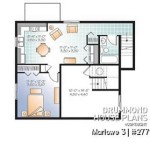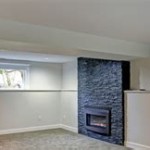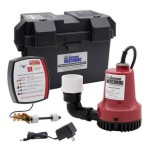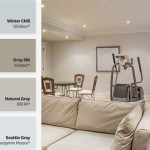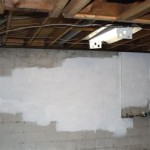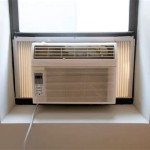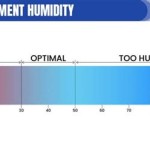Roller Blinds for Basement Windows: Functionality, Style, and Considerations
Basement windows often present unique challenges when it comes to window treatments. Unlike windows on the main floors of a home, basement windows may be smaller, located closer to the ground, and prone to issues such as moisture and limited natural light. Selecting the right window coverings is crucial for addressing these concerns while enhancing the functionality and aesthetics of the basement space. Roller blinds, with their diverse range of materials, ease of use, and affordability, are a popular and practical choice for basement windows.
The utility of a basement extends beyond mere storage. Many homeowners convert their basements into living areas, home offices, gyms, or bedrooms. In such scenarios, controlling light, ensuring privacy, and managing temperature are paramount. Roller blinds offer a versatile solution for these requirements, providing a clean and minimalist aesthetic that integrates seamlessly with various interior design styles.
This article will delve into the benefits of using roller blinds for basement windows, exploring the factors to consider when choosing the appropriate style and material, and addressing common challenges associated with basement environments. We will also discuss the different types of roller blinds available and installation tips to ensure optimal performance and longevity.
Light Control and Privacy
One of the primary functions of window treatments is to control the amount of light entering a room. Basement windows often receive limited natural light, and it is important to maximize this light while still having the option to block it out when necessary. Roller blinds provide excellent light control, ranging from sheer fabrics that allow diffused light to enter to blackout materials that completely block out light. This versatility is especially beneficial in basements used as bedrooms or home theaters, where complete darkness may be desired.
Privacy is another important consideration, particularly if the basement window is at ground level or faces a public area. Roller blinds offer varying degrees of privacy, depending on the fabric selected. Sheer fabrics provide a minimal level of privacy, allowing light to pass through while obscuring the view from the outside. Opaque fabrics offer a higher degree of privacy, preventing anyone from seeing into the room. Blackout fabrics offer the highest level of privacy, completely blocking the view from both inside and outside.
The ability to adjust the height of the roller blind allows for precise control over both light and privacy. The blind can be fully retracted to maximize natural light or lowered to any desired height to achieve the optimal balance between light and privacy. This flexibility is particularly useful in basements where the amount of natural light varies throughout the day.
Furthermore, motorized roller blinds offer even greater convenience and control. These blinds can be operated remotely, allowing users to adjust the light and privacy settings without having to physically access the window. This is especially useful for hard-to-reach basement windows. Motorized blinds can also be programmed to automatically adjust at specific times of day, further enhancing comfort and energy efficiency.
Material Considerations for Basement Environments
The choice of material for roller blinds in a basement environment is crucial, as basements are often susceptible to humidity, moisture, and temperature fluctuations. Selecting the wrong material can lead to mold growth, warping, and premature deterioration of the blinds. Therefore, it is essential to choose materials that are durable, moisture-resistant, and easy to clean.
Vinyl roller blinds are a popular choice for basements due to their inherent moisture resistance. Vinyl is a non-porous material that does not absorb water, making it ideal for damp environments. Vinyl blinds are also easy to clean and maintain, requiring only a simple wipe down with a damp cloth. They are available in a wide range of colors and patterns, offering versatility in design.
Polyester roller blinds are another excellent option for basements. Polyester is a synthetic fabric that is resistant to mildew, fading, and stretching. It is also relatively inexpensive and easy to care for. Polyester blinds are available in a variety of textures and patterns, providing a wide range of aesthetic options.
Solar shades, made of specialized synthetic materials, are designed to reduce heat gain and glare while still allowing some natural light to enter the room. These shades are particularly useful in basements that are exposed to direct sunlight, as they can help to regulate the temperature and reduce energy costs. Solar shades are also resistant to fading and mildew, making them a durable and practical choice for basement windows.
Avoid using natural fabrics such as cotton or linen in basement environments. These materials are highly susceptible to moisture absorption and can easily develop mold and mildew. If natural fabrics are desired, consider treating them with a water-resistant sealant to protect against moisture damage.
In addition to the material of the blind itself, consider the material of the hardware. Metal components should be made of rust-resistant materials such as aluminum or stainless steel to prevent corrosion in damp environments. Plastic components should be made of durable, high-quality materials that can withstand temperature fluctuations and humidity.
Addressing Common Basement Window Challenges
Basement windows often present unique challenges that must be addressed when selecting and installing roller blinds. These challenges include limited natural light, small window sizes, uneven window frames, and the potential for moisture and drafts. By carefully considering these factors, homeowners can select the right type of roller blind and ensure proper installation for optimal performance.
Limited natural light is a common issue in basements. To maximize the available light, choose roller blinds made of light-colored or sheer fabrics. These fabrics will allow more light to enter the room while still providing some level of privacy. Avoid using dark-colored or blackout fabrics, as these will further reduce the amount of natural light.
Small window sizes can make it difficult to find blinds that fit properly. Fortunately, roller blinds can be custom-made to fit any window size. Be sure to measure the window accurately before ordering the blinds to ensure a perfect fit. Consider using outside-mount blinds, which are mounted on the wall above the window, to make the window appear larger.
Uneven window frames can also pose a challenge. If the window frame is significantly uneven, it may be necessary to shim the mounting brackets to ensure that the blinds hang straight. Alternatively, consider using cordless roller blinds, which do not require any cords or chains and can be easily adjusted to compensate for uneven frames.
Moisture and drafts are common problems in basements. To prevent moisture damage, choose roller blinds made of moisture-resistant materials such as vinyl or polyester. Ensure that the blinds are properly ventilated to prevent condensation from forming on the window. To minimize drafts, consider using thermal roller blinds, which are designed to insulate the window and reduce heat loss. These blinds typically have a special lining that helps to block out cold air.
Proper installation is crucial for ensuring the longevity and performance of roller blinds in a basement environment. Follow the manufacturer's instructions carefully and use appropriate hardware for the type of window frame. Ensure that the blinds are properly secured to prevent them from falling down or becoming damaged. Consider hiring a professional installer if you are unsure about any aspect of the installation process.
Regular maintenance is also important for keeping roller blinds in good condition. Clean the blinds regularly with a damp cloth to remove dust and dirt. Avoid using harsh chemicals or abrasive cleaners, as these can damage the fabric. Check the hardware periodically to ensure that it is still secure and in good working order. Replace any worn or damaged parts promptly to prevent further damage.
By carefully considering these factors, homeowners can select and install the right type of roller blinds for their basement windows and enjoy the benefits of light control, privacy, and energy efficiency for years to come.
The diverse range of materials, styles, and functionalities available in roller blinds make them a highly adaptable and effective window treatment option for the unique demands of basement spaces. Properly selected and maintained roller blinds can significantly improve the comfort, aesthetics, and overall utility of a basement environment.

Best Basement Window Treatments For Privacy And Style

Basement Window Blinds Shades For Small Spaces More Factory Direct

5 Window Treatments For Basements Wholesale Blind Factory

Best Blinds For Basement Windows Skyblinds

Blinds For Small Basement Windows Naka S Drapery

Basement Renovation Shutters Mile High Interiors

How To Choose The Best Blinds For Small Basement Windows Factory Direct

Roller Shades Idea Nouveau Ocean From Smith Noble

5 Window Treatments For Basements Wholesale Blind Factory

10 Ideas For Basement Window Coverings With Sources Rambling Renovators
Related Posts
